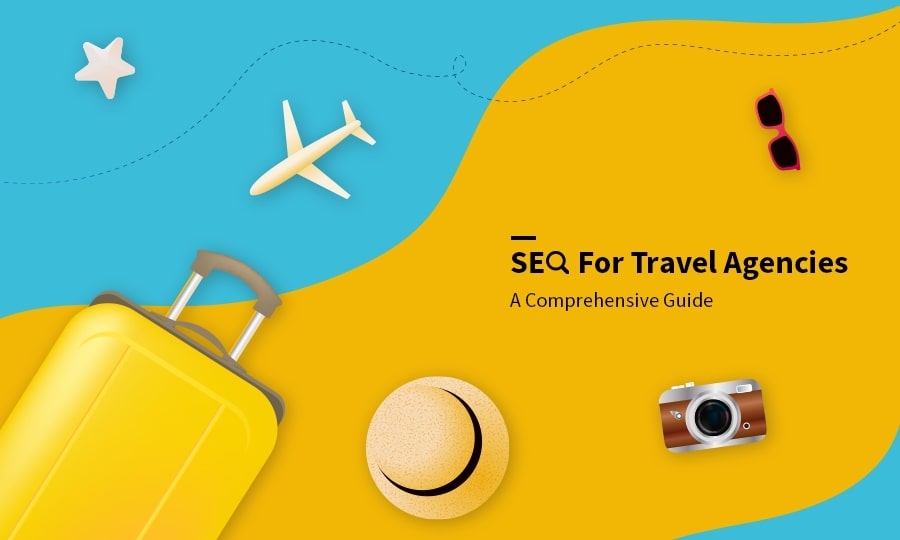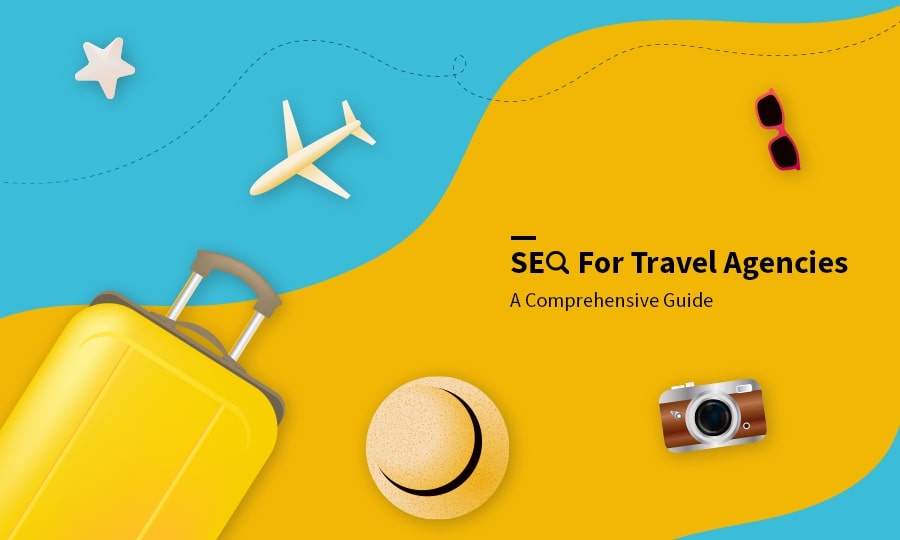
Understanding the Importance of SEO for Online Travel Agencies (OTAs)
Online Travel Agencies (OTAs) are competing in a highly saturated market in today's competitive digital world. Since most travelers use the internet to research, plan, and book their trips, OTAs need to have a good online presence. This is where SEO comes into play. SEO stands for Search Engine Optimization-a very effective tool that really can make a difference regarding the visibility, traffic, and sales of OTAs. This blog will detail why SEO is important for OTAs, how it works, and gives some actionable tips on improving your OTA's SEO strategy.
What is SEO and Why is it Important for OTAs?
SEO stands for search engine optimization, which can be defined as the improvement process of a website, optimizing it to rank higher on a search engine results page (SERP). The essence of SEO is to drive more organic, non-paid traffic toward your website by simply being ranked higher in search results every time a user tries searching for relevant terms.
In other words, for OTAs, being at the top of the pile in terms of SEO is so important since most travelers start their search through a search engine. Those seeking the best available hotel deals, the finest package deals for vacations, or perhaps even just the top tourist destinations look directly to platforms like Google first to find the information they're looking for. If your OTA website is not found or appears anywhere close to the top in such rankings, you are possibly losing the valuable traffic and potential customers.
Optimization of an OTA site through search engines helps get a more accurate crowd for yourself and also drives in more relevant traffic and therefore, boosts your bookings and sales.
How SEO Works for OTAs
SEO refers to a number of strategies and tactics aimed at enhancing a website's visibility in search engines. Tactics can be categorized into three main areas: on-page SEO, off-page SEO, and technical SEO. Let's look at them in the context of OTAs.
1. On-page SEO
On-page SEO refers to optimization of individual pages in order to make a website search engine friendly. In the realm of on-page tasks lie URL, image, meta tag, and content optimizations.
Content is always the king in the process of optimizing for search engines. OTAs are delivering valuable and relevant information so that user questions get replied while going there and around about the stay. That hotel description destination guide travel tip should have quality in all this it may need to hold information specific for targeted audiences or groups, for which these keywords may go up in searches.
Meta Tags: Meta tags are also considered part of SEO as they are the pieces of information search engines will take into consideration when viewing the content of your page. Compelling and keyword-rich meta tags will increase the CTR of your link, letting users know what to expect when clicking on it.
Internal linking: This is the practice of linking your website to other pages related to the content. Internal links help search engines crawl and index your site more efficiently. For instance, it might include a hotel booking page linked to a destination guide or local attractions in that destination.
User Experience (UX): Google and other search engines favor websites that have a good user experience. A clean, easy-to-navigate website with fast loading speeds and clear calls to action (CTAs) is more likely to rank well.
2. Off-Page SEO
Off-page SEO entails activities that happen off your website but do influence your rankings in search engines. Of all the important things to do with off-page SEO, the backlink - or rather, links to your site from other websites - remains the most crucial.
Backlinks: Links from relevant and authoritative websites tell search engines that your site is valuable and reliable. For OTAs, getting backlinks from travel blogs, news sites, tourism boards, and other relevant sites will make their website look more credible and, hopefully, improve the rankings.
Social Media Engagement: Signals coming from social media (like, shares, etc.) do not contribute directly to SEO rankings; however, social media might become an effective tool to bring visitors to your OTA website. Increased brand recognition, more customers, and even possibly more backlinks could come with a good social media presence.
3. Technical SEO
Technical SEO enhances structure, speed, and mobile responsiveness, thus ensuring a site is as search engine friendly from a technical perspective as possible.
Mobile Optimization: Google has now become a mobile-first index, ranking websites according to their mobile versions since more and more users are using the internet on mobile. The website should be completely optimized for mobile devices with smooth user experience for people who browse and book on their phones.
Website Speed: Website loading speed is one of the ranking factors. A slow loading website frustrates the users and increases the chances of higher bounce rate, which diminishes SEO. Therefore, one needs to get a fast loading OTA website by optimizing images, minimizing the codes, and web hosting.
Structured Data Markup: The use of structured data, also referred to as schema markup, improves the ability of search engines to understand your page content. For OTAs, this may include marking up hotel ratings, prices, availability, and reviews that may help improve the look of your listing in search results with rich snippets (extra information such as star ratings or pricing).
Key Takeaways from SEO for OTAs
Now that we have an idea of how OTAs do their SEO, let's take a look at what the key takeaways are through an effective strategy for SEO.
1. Increased Web Traffic
SEO enhances your site's ranking on the search results pages, making it more likely to have people visiting your site when users input travel-related queries. Since a majority of clicks tend to happen when users perform search queries and click on websites on the first page, having more visibility enhances the chances of increased traffic to your site, thus increased conversion and booking rates.
2. Cost-Effective Marketing
Unlike paid advertising, which requires ongoing investment, SEO brings long-term results at relatively low costs. Though it takes time and effort to build SEO, once your OTA ranks well in search results, it will continue bringing organic traffic without having to pay for clicks. In this regard, SEO is the most cost-effective marketing strategy for OTAs.
3. Increased Credibility and Trust
A high-ranking website is always assumed to be more reliable by the visitor. Therefore, the process of optimization with quality backlinks increases the credibility of an OTA among both the search engines and clients.
4. Better User Experience
SEO is not only ranked but also user experience. More chances that the website would hold the interest of the user and take him back with a fast easy-to-navigate website filled with related content. More user experience increases the chance for better conversion, more satisfied customers, and customer loyalty.
5. Competitive Advantage
The travel industry is highly competitive, and OTAs need every edge they can get. Investing in SEO will allow your OTA to stay ahead of the competition by improving search engine rankings and attracting more potential customers. Effective SEO can even make small OTAs compete with the giants in the industry.
Tips for Improving SEO for OTAs
If you want to help optimize your OTA's SEO, here are some things you can do:
Keyword Research: Find appropriate keywords that customers would be searching for. Tools include Google Keyword Planner or SEMrush. It helps find a keyword with high search volume and low competition.
Optimize for Local SEO: If your OTA has specific regional activities, optimizing for local SEO may bring in more customers in such regions. Create location-specific landing pages, claim your Google My Business listing, and collect customer reviews.
Invest in content marketing: Content marketing is one of the best methods of producing great content, whether in the form of destination guides, travel blogs, or even customer testimonials. Not only does it aid your SEO but engages the user and fosters trust.
Optimize for Voice Search: Given the increased adoption of voice assistants, more people are utilizing voice search to book travel. This means that your content needs optimization for natural language queries and long-tail keywords.
Monitor and Analyze Performance: Use tools such as Google Analytics and Google Search Console to monitor the performance of your website. Track traffic, bounce rates, and conversion rates to identify the areas that need improvement in your website.
Conclusion
In such an intense competitive arena, what SEO does for OTAs is to become their ticket to the top and therefore attract more customers to book. If important learning about SEO is made and implemented with the right strategies, OTAs can stay ahead of the curve and gain huge success online. With regard to both on-page SEO and backlink building or technical optimization of your site, investing in SEO is one of the most valuable ways to grow your OTA business.
Related Blog
Artificial Intelligence Transforming the Travel Sector

 Start your Travel Business with Our 7 Day Free Trial Website!
Start your Travel Business with Our 7 Day Free Trial Website!





